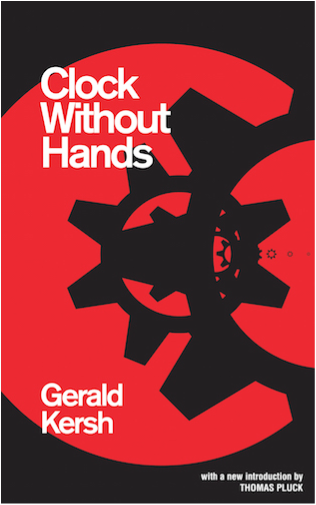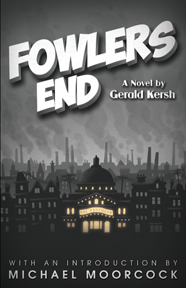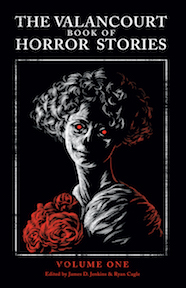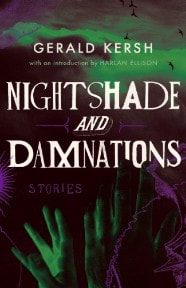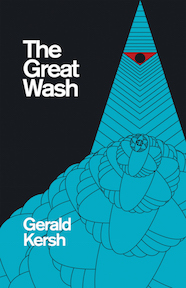|
BOOK DETAILS
Trade paper ISBN-13: 978-1941147566 List Price: $17.99 U.S. Pages: 218 Published: 2015 |
Clock Without Hands (1949)
Gerald Kersh With a new introduction by Thomas Pluck Book Description
Best known for his gritty novels of London life and his weird and often horrific short fiction, in Clock Without Hands (1949) Gerald Kersh delivers three novellas, each very different but all showcasing the virtuosity of his storytelling. Clock Without Hands relates the unexpected and macabre impact of a sordid murder on the mild-mannered neighbour who witnesses the crime. In Flight to the World’s End, a desperate boy flees his cruel life at an orphanage, only to discover a harsh truth about the world outside. And in Fairy Gold, a clerk plays a malicious practical joke on his impoverished co-worker, with unpredictable and startling consequences. Gerald Kersh (1911-1968) published more than thirty books, including the noir classic Night and the City (1938) and Fowlers End (1957), which Anthony Burgess called “one of the great comic novels of the century,” as well as hundreds of short stories which were once ubiquitous in British and American magazines. But though he has been championed by Angela Carter, Harlan Ellison, Ian Fleming, Michael Moorcock and others, Kersh has undeservedly fallen into neglect since his death. This edition of one of his lesser-known books is the first-ever reprint and includes a new introduction by Thomas Pluck. |
reviews
“How easy Mr. Kersh makes it all seem! How admirably he sets the scene, the atmosphere . . . very neatly done.” – The Observer
“Three short, rough novels, hard-hitting, battering the emotions without compunction . . . Kersh tells a story, as such, rather better than anybody else.” – Pamela Hansford Johnson, Daily Telegraph
“Three short, rough novels, hard-hitting, battering the emotions without compunction . . . Kersh tells a story, as such, rather better than anybody else.” – Pamela Hansford Johnson, Daily Telegraph
ALSO AVAILABLE THROUGH ONLINE RETAILERS
MORE TITLES BY THIS AUTHOR
AUTHOR BIOGRAPHY
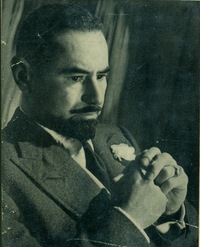
Gerald Kersh was born in Teddington-on-Thames, near London, in 1911. He left school and took on a series of jobs—salesman, baker, fish-and-chips cook, nightclub bouncer, freelance newspaper reporter—and at the same time was writing his first two novels. His career began inauspiciously with the release of his first novel, Jews Without Jehovah, published when Kersh was 25: the book was withdrawn after only 80 copies were sold when Kersh’s relatives brought a libel suit against him and his publisher. He gained notice with his third novel, Night and the City (1938) and for the next thirty years published numerous novels and short story collections, including the novel Fowlers End (1957), which some critics, including Harlan Ellison, believe to be his best.
Kersh fought in the Second World War as a member of the Coldstream Guards before being discharged in 1943 after having both his legs broken in a bombing raid. He traveled widely before moving to the United States and becoming an American citizen, because “the Welfare State and confiscatory taxation make it impossible to work over there, if you’re a writer.”
Kersh was a larger than life figure, a big, heavy-set man with piercing black eyes and a fierce black beard, which led him to describe himself proudly as “villainous-looking.” His obituary recounts some of his eccentricities, such as tearing telephone books in two, uncapping beer bottles with his fingernails, bending dimes with his teeth, and ordering strange meals, like “anchovies and figs doused in brandy” for breakfast. Kersh lived the last several years of his life in the mountain community of Cragsmoor, in New York, and died at age 57 in 1968 of cancer of the throat.
Kersh fought in the Second World War as a member of the Coldstream Guards before being discharged in 1943 after having both his legs broken in a bombing raid. He traveled widely before moving to the United States and becoming an American citizen, because “the Welfare State and confiscatory taxation make it impossible to work over there, if you’re a writer.”
Kersh was a larger than life figure, a big, heavy-set man with piercing black eyes and a fierce black beard, which led him to describe himself proudly as “villainous-looking.” His obituary recounts some of his eccentricities, such as tearing telephone books in two, uncapping beer bottles with his fingernails, bending dimes with his teeth, and ordering strange meals, like “anchovies and figs doused in brandy” for breakfast. Kersh lived the last several years of his life in the mountain community of Cragsmoor, in New York, and died at age 57 in 1968 of cancer of the throat.

